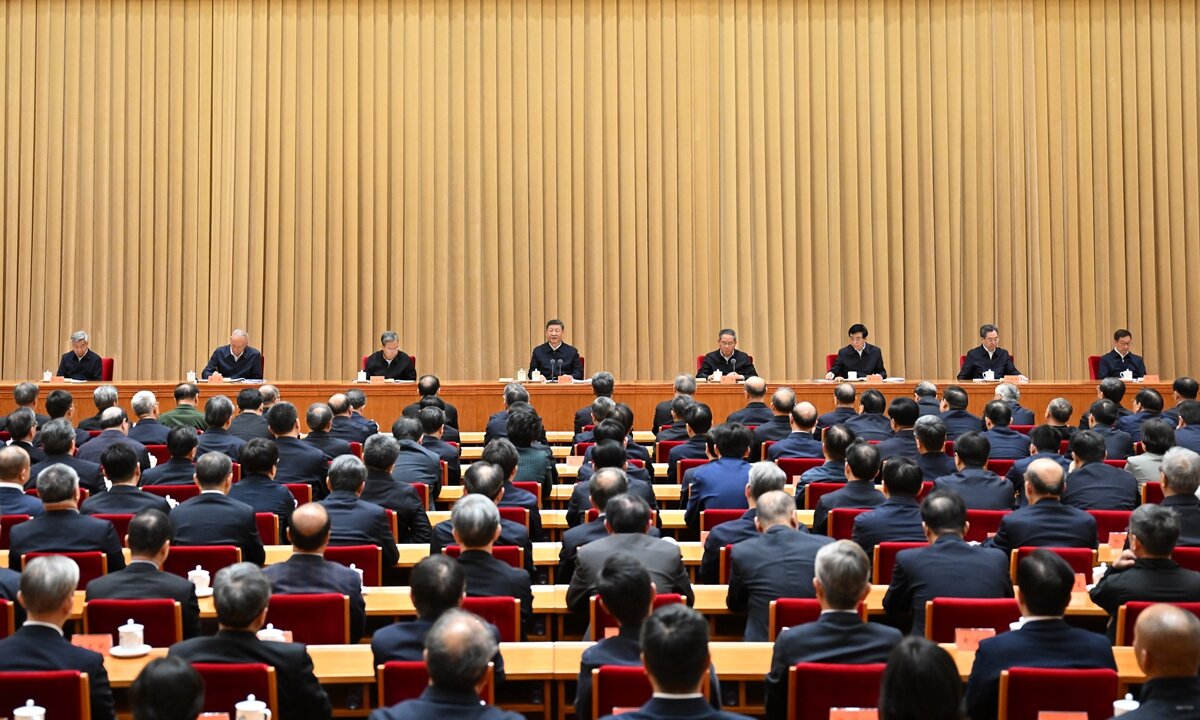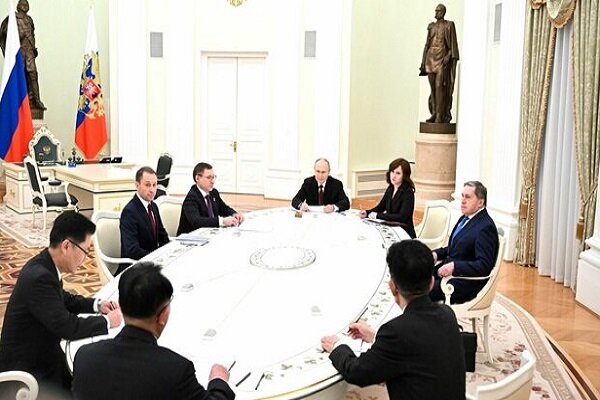President Xi Pledges to Strengthen China’s Strategic Alliances Amid Escalating US Trade War
In a significant move to enhance regional cooperation, President Xi Jinping has emphasized the importance of fostering a community with a shared future among China’s neighboring countries. This initiative aims to open new avenues in neighborhood diplomacy and cultivate stronger ties with adjacent nations. These remarks were made during a central conference focused on neighboring country relations held in Beijing from April 8 to 9.
During the conference, President Xi systematically summarized the accomplishments and experiences of China’s neighborhood diplomacy in the new era. He provided a detailed analysis of the current geopolitical landscape and set forth goals, tasks, ideas, and measures for the next phase of neighborhood initiatives. The president’s vision aims to strengthen strategic bonds with neighboring nations while managing differences “appropriately” and enhancing supply chain connections.
The conference was attended by key members of the Standing Committee of the Political Bureau of the Central Committee of the Communist Party of China (CPC), including Prime Minister Li Qiang. In his address, Li highlighted the necessity of fully embracing the essence of President Xi’s significant remarks and diligently executing the responsibilities tied to relations with neighboring countries.
Key Highlights from the Conference
- Importance of Neighborhood Relations: The vast territory and extensive borders of China position neighboring regions as a crucial foundation for national development and prosperity.
- National Security: These areas serve as a primary front for safeguarding China’s national security.
- Global Perspective: The conference urged participants to adopt a global perspective on neighboring regions and enhance the sense of responsibility in advancing China’s neighborhood work.
- Global Peace Efforts: China is committed to promoting peace and security worldwide, not just within its borders.
Moreover, during the recent Boao Forum for Asia (BFA) Annual Conference 2025, held in Hainan Province, China reiterated its commitment to multilateralism. Zhou Xiaochuan, vice chairman of the BFA, stated at a sub-forum that Asian nations should work towards regional economic integration and create an inclusive and equitable form of economic globalization.
He emphasized the need for these countries to unite against unilateralism and trade protectionism while advocating for true multilateralism. In addition to regional initiatives, China is actively engaged in resolving global conflicts, including the ongoing war between Russia and Ukraine, through diplomatic channels.
Impact of the US Trade War on China
President Xi’s remarks came at a critical time, as tensions rise due to the ongoing US trade war against China. On Wednesday, China announced an increase in tariffs to 84% on imports of all US goods, a substantial rise from the previous 34%. This decision was a direct response to the latest wave of tariffs imposed by the Trump administration, which included a staggering 104% rate on imports from China.
Former President Donald Trump initiated this trade conflict upon returning to the White House on January 20 by imposing tariffs on Chinese imports. In retaliation, Beijing has placed tariffs on American goods, particularly targeting agricultural products. China has called on Washington to correct its “wrong practices” and to cancel all unilateral tariff measures. It seeks to resolve these differences through equal dialogue based on mutual respect.
Experts believe that the trade war will ultimately backfire and adversely affect American farmers. A prominent American economist, Jeffrey Sachs, who is the Director of the Center for Sustainable Development at Columbia University, characterized Trump’s trade strategy as counterproductive. He stated, “Well, I think the trade war is very self-defeating for the United States. So I don’t think that it will impede China but it will hurt the United States,” during an interview at the BFA’s sidelines last month.
Conclusion
As China continues to navigate the complexities of international relations, the emphasis on neighborhood diplomacy and regional cooperation is more critical than ever. By fostering strategic partnerships and promoting multilateralism, China aims not only to secure its national interests but also to contribute positively to global stability and economic integration.






